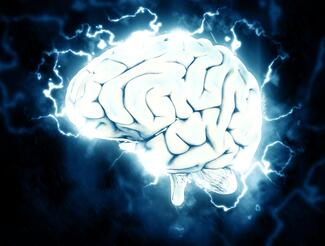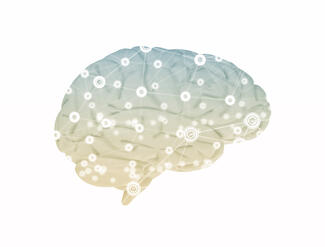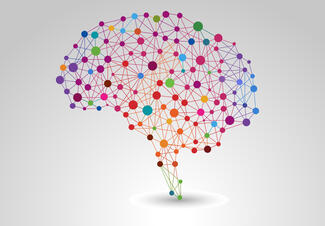Predictors of Functional Outcomes in Schizophrenia: Towards Personalized Care
The Burden of Functional Impairment in Schizophrenia
Traditionally, the definition of remission in patients with schizophrenia has focused on symptom relief, meaning that core symptoms are absent or mild enough that they do not substantially affect a patient’s everyday behavior.1 However, this definition does not effectively predict a patient’s functional outcomes.2 In a study of 239 patients with schizophrenia treated with antipsychotics, 63% met the traditional symptom-based criteria for remission. In contrast, only 18% met the Clinical Global Impression (CGI)-based criteria that offer a broader perspective on how patients are doing. Symptomatic remitters were also found to have significantly lower levels of functioning, as measured using the Global Assessment of Functioning.2
Consequently, even with effective antipsychotic treatment, many individuals with schizophrenia face ongoing challenges with essential aspects of daily life, such as holding a job, establishing and maintaining social connections, living independently, and managing physical health.3,4 As such, functional disability remains one of the most critical challenges for individuals living with schizophrenia, and in particular, negative symptoms have shown a profound impact on function.5 Understanding the drivers of functional status in these patients and predicting functional outcomes has become central to care strategies, especially as medications that alleviate symptoms improve, and we can move towards a more personalized and recovery-oriented approach to treatment.6
The Impact of Negative Symptoms on Function
Research highlights the physical impact of negative symptoms on functional status. Symptom relapse may be predictive of functional outcomes, with the duration of relapse correlating with deleterious alterations in brain structures, which in turn have been linked to worsening patient function.7 Neuroimaging studies have consistently shown reductions in gray and white brain matter in patients with schizophrenia,8 and these alterations are associated with functional impairment. For example, in a 2015 study, structural changes in frontotemporal brain regions, including the arcuate and inferior longitudinal fasciculi, predicted functional outcomes. The relationship between altered brain architecture and functional deficits may be mediated by negative symptoms, suggesting that neural circuit dysfunction, especially in regions involved in language and emotion processing, contributes to poor functioning.9
An analysis of 618 individuals with schizophrenia confirmed that negative symptoms were a key contributor to functional deficits, and also identified neurocognition, social cognition, and functional capacity as important predictors.10-12 While these factors may interact, a study of 58 individuals with schizophrenia found that negative symptoms—particularly the domains of avolition-apathy and diminished expression—contributed to substantial variance in predicting real-world functioning and employment outcomes beyond the effects of neurocognition and functional capacity. Both avolition-apathy and diminished expression independently predicted functional outcomes, with avolition-apathy specifically adding predictive value for employment status. These findings suggest that even when cognitive ability and performance-based skills are preserved, motivational deficits and reduced expressiveness can significantly hinder real-world performance. As such, interventions targeting negative symptoms—especially motivational impairments—may be critical for promoting functional recovery in schizophrenia.13
The Impact of Cognitive Impairment on Function
The contributions of cognitive function to functional outcomes are complex. For example, neurocognition has been associated with everyday functioning and work skills, while social cognition predicted both work and interpersonal functioning.11 A meta-analysis helped clarify the relationship between cognition and functioning and found that neurocognition and social cognition are not distinct domains. Across 166 studies, neurocognitive abilities (like attention and memory) and social cognitive skills (like interpreting others’ emotions and responding to social cues) were significantly related to functional outcomes. However, social cognition mediated the relationship between neurocognition and functioning. In other words, better neurocognition leads to better social cognition, enhancing real-world performance. This interdependence supports the idea that interventions targeting both domains, rather than neurocognition alone, may yield better functional results.14
The Impact of Physical Health on Function
Physical health conditions are also a factor in the equation, as sedentary living, obesity, and impaired glucose metabolism are each thought to contribute to cognitive function.15 In older patients, physical health issues such as cardiovascular disease, metabolic syndrome, respiratory disease, and urinary system disorders have been found to diminish functional status.5,12,16
Summary
Taken together, these findings underscore that functional recovery in schizophrenia is multifactorial, shaped by an interplay of negative symptoms, both objective and experiential, a range of cognitive deficits, and broader neurobiological changes. While controlling core symptoms remains a necessary foundation for managing schizophrenia, it is insufficient on its own to ensure meaningful improvements in daily life.5
References:
- Andreasen NC, Carpenter WT, Kane JM, Lasser RA, Marder SR, Weinberger DR. Remission in schizophrenia: proposed criteria and rationale for consensus. Am J Psychiatry. 2005;162(3):441-9. doi:10.1176/appi.ajp.162.3.441
- Schennach R, Obermeier M, Spellmann I, et al. Remission in schizophrenia— what are we measuring? Comparing the consensus remission criteria to a CGI-based definition of remission and to remission in major depression. Schizophr Res. 2019 Jul;209:185-192. doi:10.1016/j.schres.2019.04.022
- Correll CU, Schooler NR. Negative symptoms in schizophrenia: a review and clinical guide for recognition, assessment, and treatment. Neuropsychiatr Dis Treat. 2020;16:519-534. doi:10.2147/NDT.S225643. PMID: 32110026; PMCID: PMC7041437.
- Silberstein J, Harvey PD. Cognition, social cognition, and self-assessment in schizophrenia: prediction of different elements of everyday functional outcomes. CNS Spectr. 2019;24(1):88-93. doi:10.1017/S1092852918001414
- Harvey PD, Strassnig MT, Silberstein J. Prediction of disability in schizophrenia: symptoms, cognition, and self-assessment. J Exp Psychopathol. 2019;10(3). doi:10.1177/2043808719865693
- Best MW, Law H, Pyle M, Morrison AP. Relationships between psychiatric symptoms, functioning, and personal recovery in psychosis. Schizophr Res. 2020;223:112-118. doi:10.1016/j.schres.2020.06.026
- Emsley R. Antipsychotics and structural brain changes: could treatment adherence explain the discrepant findings? Ther Adv Psychopharmacol. 2023;13:20451253231195258. doi:10.1177/20451253231195258
- Cropley VL, Klauser P, Lenroot RK, et al. Accelerated gray and white matter deterioration with age in schizophrenia. Am J Psychiatry. 2017;174(3):286-295. doi:10.1176/appi.ajp.2016.16050610
- Behdinan T, Foussias G, Wheeler AL, et al. Neuroimaging predictors of functional outcomes in schizophrenia at baseline and 6-month follow-up. Schizophr Res. 2015;169(1-3):69-75. doi:10.1016/j.schres.2015.10.023
- Giuliani L, Giordano GM, Bucci P, Pezzella P, Brando F, Galderisi S. Improving knowledge on pathways to functional outcome in schizophrenia: main results from the Italian network for research on psychoses. Front Psychiatry. 2021;12:791117. doi:10.3389/fpsyt.2021.791117
- Mucci A, Galderisi S, Giberrtoni D, et al. Factors associated with real-life functioning in persons with schizophrenia in a 4-year follow-up study of the Italian network for research on psychoses. JAMA Psychiatry. 2021;78(5):550-559. doi:10.1001/jamapsychiatry.2020.4614
- Wu C, Ye J, Li S, et al. Predictors of everyday functional impairment in older patients with schizophrenia: A cross-sectional study. Front Psychiatry. 2023;13:1081620. doi:10.3389/fpsyt.2022.1081620
- Yang Z, Lee SH, Rashid NAA, et al. Predicting real-world functioning in schizophrenia: the relative contributions of neurocognition, functional capacity, and negative symptoms. Front Psychiatry. 2021;12:639536. doi:10.3389/fpsyt.2021.639536
- Halverson TF, Orleans-Pobee M, Merritt C, Sheeran P, Fett AK, Penn DL. Pathways to functional outcomes in schizophrenia spectrum disorders: Meta-analysis of social cognitive and neurocognitive predictors. Neurosci Biobehav Rev. 2019;105:212-219. doi:10.1016/j.neubiorev.2019.07.020
- Stubbs B, Ku PW, Chung MS, Chen LJ. Relationship between objectively measured sedentary behavior and cognitive performance in patients with schizophrenia vs controls. Schizophr Bull. 2017;43(3):566-574. doi:10.1093/schbul/sbw126
- Cuoco F, Agostoni G, Lesmo S, et al. Get up! Functional mobility and metabolic syndrome in chronic schizophrenia: Effects on cognition and quality of life. Schizophr Res Cogn. 2022;28:100245. doi:10.1016/j.scog.2022.100245
SC-US-78986
SC-US-79208
Copyright ©2025 Boehringer Ingelheim Pharmaceuticals, Inc.
All Rights Reserved.
















